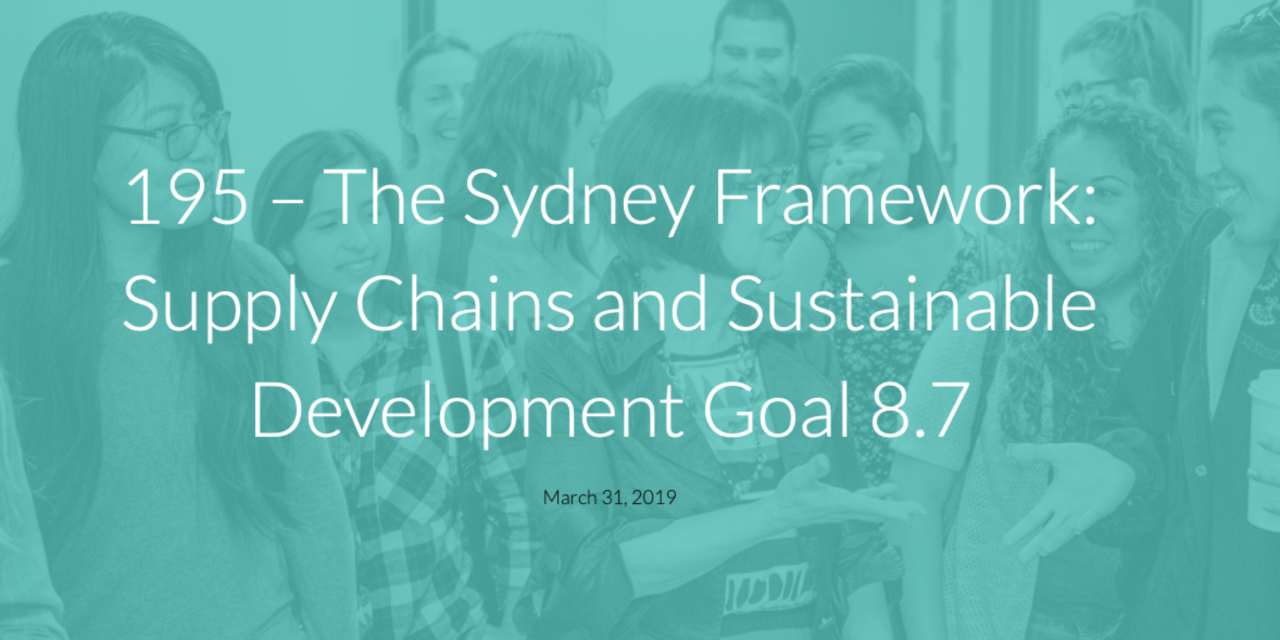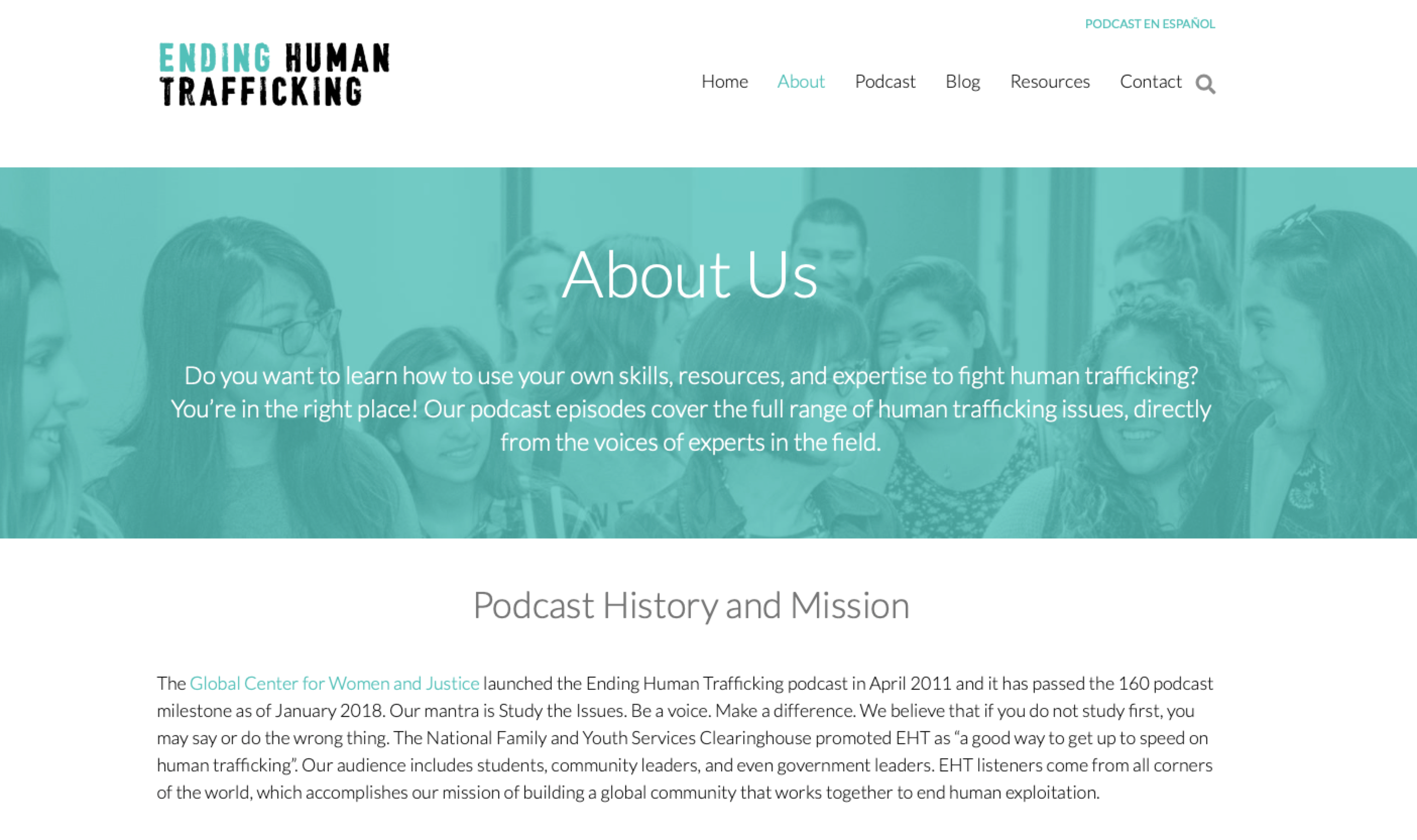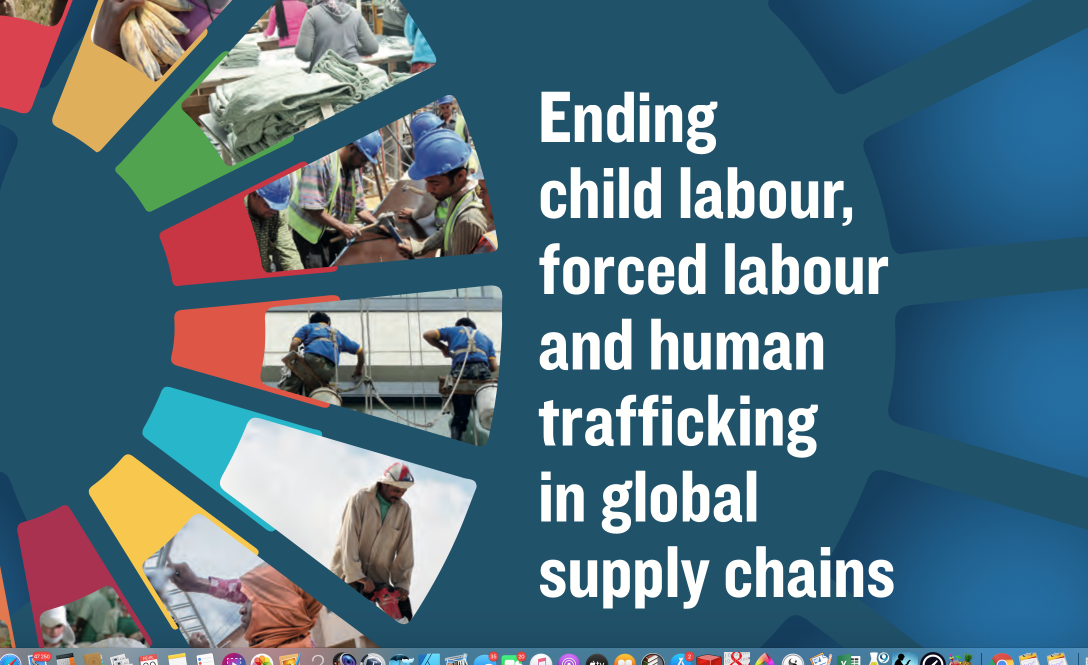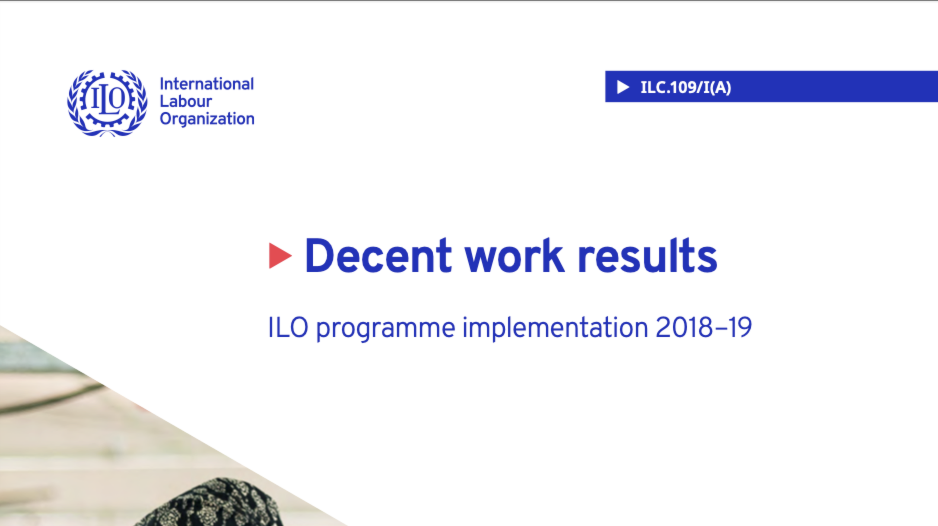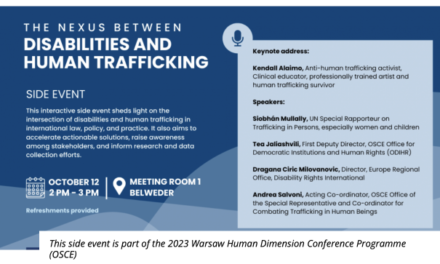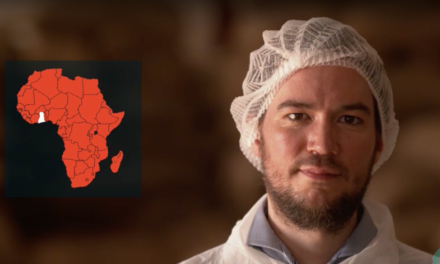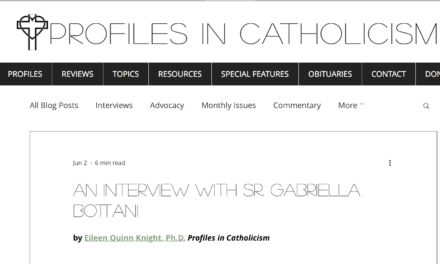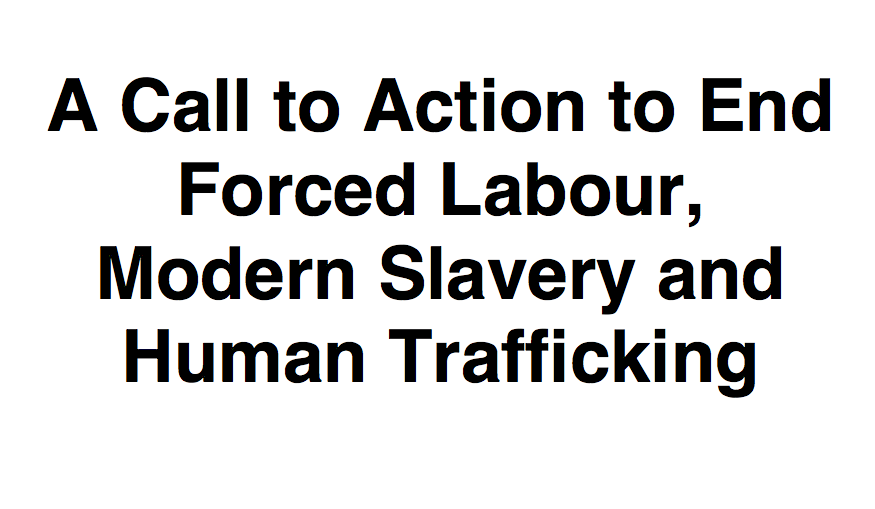Dr. Sandie Morgan and Dave Stachowiak discuss supply chains and sustainable development with John McCarthy. John is currently the Chair of the Sydney Archdiocesan Antislavery Task Force and former Australian Ambassador to the Holy See. Together, they examine the Sydney Framework and the impact that communities across the world could have on ending modern-day slavery and forced labor.
Key Points
- Sustainable Development Goal 8.7 seeks to take immediate and effective measures to eradicate forced labor, end modern slavery and human trafficking, and secure the prohibition and elimination of the worst forms of child labor.
- The power of moral education and ethical purchase processes will eliminate the demand for goods and services tainted with slavery and forced labor
Resources
Are you enjoying the show?
If you enjoyed this episode, please take a moment to subscribe or rate the podcast on iTunes by clicking here. Click here for FAQs about podcasts and how to subscribe.
Haven’t been receiving our newsletter? Visit our homepage to join today.
Contact us with questions, comments, or suggestions at feedback@endinghumantrafficking.org.
Transcript
Dave: [00:00:00] You’re listening to the Ending Human Trafficking podcast. This is episode number 195, The Sydney Framework: Supply Chains and Sustainable Development Goal 8.7.
Production Credits: [00:00:13] Produced by Innovate Learning, maximizing human potential.
Dave: [00:00:34] Welcome to the Ending Human Trafficking podcast. My name is Dave Stachowiak.
Sandie: [00:00:39] And my name is Sandie Morgan.
Dave: [00:00:42] And this is the show where we empower you to study the issues, be a voice, and make a difference in ending human trafficking. Sandie, today yet another expert who has been hard at work and really working in partnership to end human trafficking. I’m so excited about this conversation.
Sandie: [00:01:00] I am too. Why don’t you go ahead and introduce our guest?
Dave: [00:01:03] I am pleased to welcome to the show today Ambassador John McCarthy. John is the chair of the Sydney Archdiocesan Antislavery Task Force. He was also Australian Ambassador to the Vatican from 2012 until 2016. During his diplomatic service at the Holy See, Mr. McCarthy was closely involved with human rights issues particularly with the eradication of modern slavery and human trafficking, a cause which Pope Francis has made a worldwide priority. Mr. McCarthy was also heavily engaged in conference and consultations in Rome during 2015 with respect to the Sustainable Development Goals. Since returning to Australia, he has remained engaged in the antislavery cause and since May 2017 has been chair of the Sydney Archdiocesan Antislavery Task Force. Mr. McCarthy lives in Sydney and is married with six children and seven grandchildren. He was a senior Barrister at Queen’s Counsel and was briefed in many notable cases including the first recognition of Native Title on the Australian mainland. Ambassador, we’re so glad to welcome you to the Ending Human Trafficking Podcast.
John: [00:02:13] Delighted to be with you.
Sandie: [00:02:15] So let’s jump into this conversation. We had dinner just a few nights ago and I was so encouraged by your hopeful attitude towards how we can use sustainable development goals and supply chain transparency to end human trafficking. So, tell us about the Sydney framework.
John: [00:02:37] What you have to understand about the Archdiocesan of Sydney is that it is a very big concern. It’s a diocese not like Los Angeles where you are, but more like New York, that is a metropolitan area that has been divided into a number of dioceses. In Sydney, we have 600,000 Catholics. There is a very large Catholic school system with 70,000 students who are part of that system with 8,500 teachers in 153 schools. And there is spend in relation to that of about $850,000,000. Most of that money is spent on wages and salaries for the 8,500 teachers, but about 150 to 200 million is spent on goods and services in respect of the school system. Which is a very large sum of money and includes construction costs because they’re always constructing new schools or renovating other schools. So there is a large exposure by the school system and other parts of our diocese through our welfare system which has about 75 million dollars a year, it’s called Catholic Care and Aged Care facilities in the archdiocese, that are exposed to goods and services that we don’t know what their provenance often is, that is whether they are tainted with slavery or with forced labor. Now, this is something that is common across most of the Western economies; it’s known to the governments, it’s known to the churches, it’s known to the corporate sector. And what the Archbishop of Sydney, Archbishop Fisher, has started as a program is that the church’s money is not to be used to buying goods and services that are tainted with slavery or forced labor. We’re not going to give money to criminals and we want to set up a system of due diligence in our supply chains so that we eliminate such goods and services, so that we can properly say to the world that we’re doing all that we can to try and eliminate forced labor and the kinds of slavery from what the church can do something about in a direct way, which is the goods and services that are purchased.
Sandie: [00:05:17] So, let me interject here. My students are constantly talking about supply chain transparency and checking to see if the products that we drive demand for are made by slaves and child forced labor slavery. And sometimes they feel a little overwhelmed and ask me if one person makes this decision, does it really make a difference. My spending income for the whole year is only $1,500, that’s what a student says to me. But you’re talking about doing this on a scale where the budget is a hundred million dollars.
John: [00:06:00] More.
Sandie: [00:06:01] More than that, talk about that.
John: [00:06:04] Well we have a very large school system and there are bulk orders of uniforms, of computers, of school equipment, and construction materials. These aren’t small items; these are large items. There are finance and procurement departments, very professional qualified people are in charge of these systems. We’re not talking about just individual purchasing; we are talking about institutional and corporate group purchasing. That’s where the large figures start to become obvious. And the suppliers are not talking about items here and there, they are talking about millions and millions of dollars of contracts. And in those respects, when we say we want to work and cooperate and have our suppliers cooperate with us so that we can do due diligence with the suppliers to see that the goods and services that are supplied to us and not tainted with slavery and not tainted with forced labor.
Sandie: [00:07:15] And I was so impressed when we were talking about this that you brought this down to ordering boxes of paper. I’m at an academic institution, we use a lot of paper. I never thought about how do you check the supply chain for paper, and how do you do that?
John: [00:07:33] Well we talk to our suppliers and we talk to the manufacturers of the paper; the issue that you’re referring to is this. As well as our supply chains policy, that’s the first link in our chain. We also have an ethical purchasing program which is concerned with our parishes, which aren’t big enough. There are 133 parishes in Sydney. They’re not big enough to have supply chains but they’ve got the presbytery they’ve got the office, and they’ve got the faithful who are part of the parish. And we’ve provided them with a way in which they can purchase a certain line of items that are guaranteed to be free of slavery and forced labor. We do this through fair trade organizations and other things. And the church guarantees to its faithful that if you buy these goods, they are free of these taints. Now in relation to those sorts of goods, one of those was going to be copy paper, and we had hoped to put copy paper on this list and we talked to those that were going to be the suppliers in relation to our ethical purchasing system to have the paper checked as to where the pulp came from. We were satisfied that it was only Australian pulp paper then it would probably have been manufactured, produced under proper wages and conditions in Australia and we wanted to know that. But it turned out, that pulp that was used came from China and came from the subcontinent and was mixed with Australian pulp. And we were not prepared to start on the basis that we’d be knocked out in the first day or so the people were saying, “Oh look. You said that we’re going to have, you guaranteed these things. We know that this pulp coming is associated with these papers that come from overseas. Can you guarantee that that hasn’t been produced with forced labor and so on.“ Well, the answer was that we couldn’t, so copy paper couldn’t be used in that way.
Sandie: [00:09:51] So, we have to go deeper or either we have to go higher. I’m not exactly sure but let’s kind of switch the conversation to why the Sustainable Development Goals are such a critical part of your agenda.
John: [00:10:07] Well all the world agreed to them. In 2015 the Sustainable Development Goals were unanimously passed by the U.N. by all the member states of the U.N., that includes the United States and Australia. And everyone agreed on a day on which the Pope, the Holy Father, Francis was at the UN to the Sustainable Development Goals. And they included 8.7, which makes specific reference to the immediate eradication of modern slavery human trafficking of the ending of child slavery by 2025 and all slavery by the end of the period for the Sustainable Development Goals which is 2030. The big thing about this is that this was an inspiration of the Pope and what he wanted was that all the world agreed that this generation would end modern slavery and human trafficking. And he got all the nations of the world to agree through 8.7 of the Sustainable Development Goals that this is what the world in all its peoples and its governments would aim to do. In other words, you can ask the United States government what their position is and they’ll tell you that, so will the Australian government, so will other governments. Some of them may not be as strong about how they’re going to go about this, but everyone agrees. And the second one was just to put a time on it, I mean what the Pope wanted the world to agree to is that we’re going to eradicate this huge affront to human dignity, these dreadful curtailments of freedom and liberty that affect about 40 million people in the world. Now admittedly this is the largest number in history, but we’ve got the biggest number of people at the present time, but it is still a very significant number. Now in relation to those people, 16 to 18 million people are calculated to be involved in supply chains that supply the ordinary goods and services that people buy in the western world and corporations and organizations and governments purchase. When governments are the biggest producers of goods and services across the world, and they have a particular responsibility. But as well as that, the Catholic Church has very significant institutional basis across the world and has supply chains also and must do something to bring about a situation where they are demonstrating that they are doing something about it.
Sandie: [00:12:59] So some of my students will be listening to this and I want them to be a little more on track with SDGs. So, we had the Millennial Development Goals early.
John: [00:13:12] Yes, Friday nights in 2015.
Sandie: [00:13:14] Right, so many of us were working on the rights of women, the girl child, we worked on poverty. Now the Sustainable Development Goals were the next set of international goals sponsored by the United Nations and they aim to eradicate poverty and a lot of the risk factors for human trafficking are alleviated if we implement and work through the Sustainable Development Goals. And that’s how we will see 8.7 actually resolve itself with the end of human trafficking.
John: [00:13:58] Yeah this is true in the way that you put it, but the fact that he was not in the earlier draft was an enormous disadvantage and an enormous setback to human dignity and freedom. It needed to be explicitly declared that this is what is going to be achieved. That these are amongst the most vulnerable people in the world, and they needed to have an express reference in the Sustainable Development Goals as to what was happening. And it was because of the vision and the influence of Pope Francis that this was brought about.
Sandie: [00:14:40] And this is so important for people to understand because it does focus on, even though it’s at the highest level and its global, it still recognizes the human dignity, the Imago Dei, of the individual whether it’s a child, a woman, or a man. So, you took this big concept and created a framework in Sydney and I want to challenge people of every faith institutions whether it’s academic, corporate townships, communities to follow this pattern in the Sydney framework. And we’re going to link to some of your resources, but can you give us a little more detail on how you developed the education and that kind of engagement into your strategy?
John: [00:15:32] Well, understand that we have a Catholic school system. The Catholic school system is a part of the mission of the church. If I can put it this way, its core business is really decent moral education. And to be able to bring about an adjustment within that so that there are a specific emphasis and priority in respect of modern slavery and enforced labor is something that was an obvious ploy. Particularly in a context where the pope has wanted an international campaign in relation piece. So, the framework was clear, and the system was adjusted both in terms of prayers, in terms of cost material, in terms of curriculum with various grades because the Catholic school system goes from K to 12, K being kindergarten, and there were various levels at which this is taught. So, the educational framework was there, specific material in respect of Catholic social teaching concerning slavery and forced labor and human dignity was brought to the fore as a part of the moral education of those in the Catholic schools. And the same in appropriate terms in respect to the parishes, that is so the families of the students at Catholic schools and others of the faithful who are part of the Catholic Church in Sydney. So, there was a basis on which this could go forward, just as there is a basis on which this can go forward in respect of other churches in those terms. And for the parishes, you don’t really need to have supply chains. You can introduce as we have done an ethical purchasing process so that it is broken down for people to be able to supply in the efforts of the archdiocese and the church to try and show that we are trying to eliminate as far as possible everything to do with goods and services that are tainted with slavery or forced labor.
Sandie: [00:17:56] So this is replicable based on the moral discipline regardless of what faith tradition that you come from. I think for me when I approach anti-human trafficking from an advocacy perspective, I’m often drawn into conversations that are from different sides of the aisle if you will. And for me, there is no anti-organization that’s fighting ending slavery. This is a bipartisan issue. This is a place that we as a global community can all agree. And the opportunity to work together across partisan lines, across religious lines, across racial and ethnic diversity, we can all be part of this. And I see this Sydney framework as something I would like people to look at doing in a community because when we do things by ourselves it isn’t scalable. What you’ve done is scalable and are there resources to help us learn how to do that?
John: [00:19:10] Well certainly we can provide the material in respect of our ethical purchasing schemes, the background, and principles on which due diligence and supply chains can be made available to others in general terms. Things are going to have to be adjusted for different continents and different countries and different developments. But the mission and the object has got to be the same, which is that religious, moral people do not want and do not associate, in any conscious way, buying goods or services that are tainted with slavery of forced labor. The other thing they should do, Professor, is this- in their own time. That we have enormous procurement of goods and services by our governments. This is taxpayer money. And if there is not similar due diligence, if there is not similar vigilance in relation to where goods and services ahead of programs about supply chains, then money is being given, taxpayer money is being given, to criminals even to criminals through this sort of distribution. And we have found in our country, and I believe it’s so in America and indeed right across the world, that we people are told the taxpayer money is being used or may be used unwittingly, maybe sometimes wittingly, but unwittingly to buy goods and services that have not been checked as to whether there is slavery elements to it or forced labor. They just reject this, people say just stop it, don’t use our taxes to support criminals. We don’t want that, that can become across nations in the world, the very basis on which these supply chains are broken you put them out of business. And if you put them out of business, then there is going to be millions of people who are going to be free. We’re going to establish this world should through 8.7 be establishing over the next 10 years that this is not to be a part of the future. That what the pope wants is an attainable and real objective, that should be achieved. And that is that we don’t have another generation in slavery.
Sandie: [00:22:01] Absolutely.
John: [00:22:03] We can’t have another generation in forced labor. That this is not our world, that this is not the world that we want for our children or our grandchildren. I mean I’ve got you mentioned in my introduction that I’ve got grandchildren, now I don’t want to see them in slavery, but I don’t want to see any children in that situation.
Sandie: [00:22:26] And I don’t want to see my grandchildren perpetuating this by making decisions that are pragmatic.
John: [00:22:34] You couldn’t put it better, Professor.
Sandie: [00:22:37] This is such a deep discussion and there’s so much more that we can talk about. Our time is wrapping up, but what I want to encourage people is go back to previous podcasts, we’ll put the links in the show notes. When we talked about the California supply chain transparency act, when we’ve talked about fair trade and what our students are doing using that, and how do you do supply chain evaluation. Those are skills that have to be part of this agenda if we are to see SDG 8.7 realized. And it takes everybody I love challenging government procurement to become experts on supply chain transparency that’s amazing. Ambassador, will you just give us a one–minute summary of what you want to see happen this year in anti-trafficking?
John: [00:23:35] If I had my wish this year there would be declarations by governments across the world that they are examining where they are obtaining goods and services and that they are announcing policies that say that if you do not have an active anti-slavery policy you do not get a contract, that the public money will not go to you and that the Christian churches and other religious states in their organizations say the same thing. And secondly that across the world there is starting to be build up an ethical purchasing policy starting simply with ordinary people through parishes but with other organizations. I mean that people become conscious that their own purchasing decisions have a moral dimension and that they can feel they are a part of a program and a part of a process that’s going on in this world that is going to see this end. And the third thing I would like to see with leaders in the antislavery cause and more generally is not only that Congress and the assemblies inundated with that but there becomes an atmosphere that this is a priority issue and we are going to win this, that slavery and forced labor is going to come to an end in all its aspects and that we are all working to bring this about.
Sandie: [00:25:17] Thank you. Thank you. Thank you. And we’ll look forward to talking to you again, Ambassador.
John: [00:25:24] It’s a pleasure. And I wish you well in all your work and carry the message as far and as loudly as possible.
Sandie: [00:25:33] I will, sir, I will.
John: [00:25:35] Your country is a leader in the world in things that can be done against slavery. There’s more to be done and I’m sure that the generosity of Americans is such that when they’re told the direction in which it can be done and how it can be done, they will do it. I look forward to working with you
Sandie: [00:25:53] Absolutely.
Dave: [00:25:55] Sandie, I’m thinking about what the ambassador just said of spreading this message far and wide, and you know we’ve really been partnered with you, each of you as listeners of this show in order to do that. And so, thank you for the privilege to be of influence. And if you’re thinking about how you can take the next step to end human trafficking, and now we are inviting you to take that next step if you haven’t already. Hop online and download a copy of Sandie’s free book, The Five Things You Must Know, a quick start guide to ending human trafficking. It’s the beginning point of being able to spread this message far and wide and that beginning point is you because it’s going to teach you the five critical things that Sandie and the Global Center for Women and Justice think you should know before you join the fight against human trafficking. You can get access to that for free, just go over to endinghumantrafficking.org. That’s also the hub for everything within the podcast and all the resources and links we mentioned in today’s show, and of course for every episode. And we will be back in two weeks with our next conversation. Sandie, thank you so much.
Sandie: [00:27:10] Thanks, Dave.
Dave: [00:27:11] Take care, everyone.

